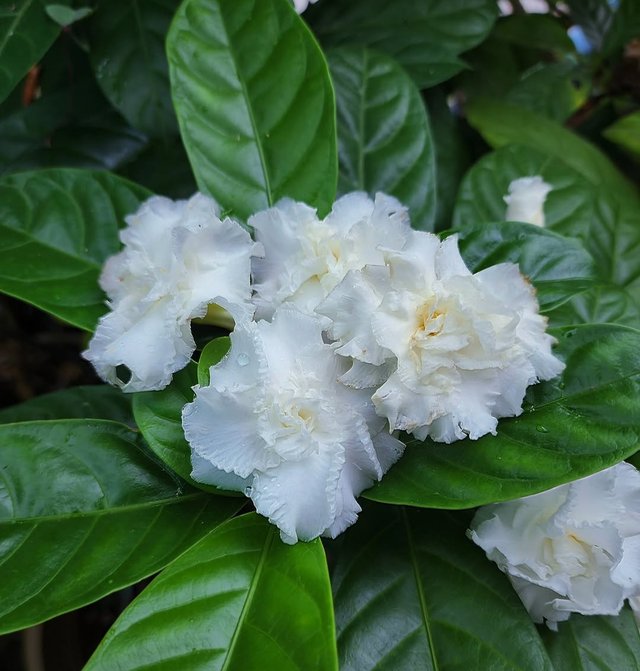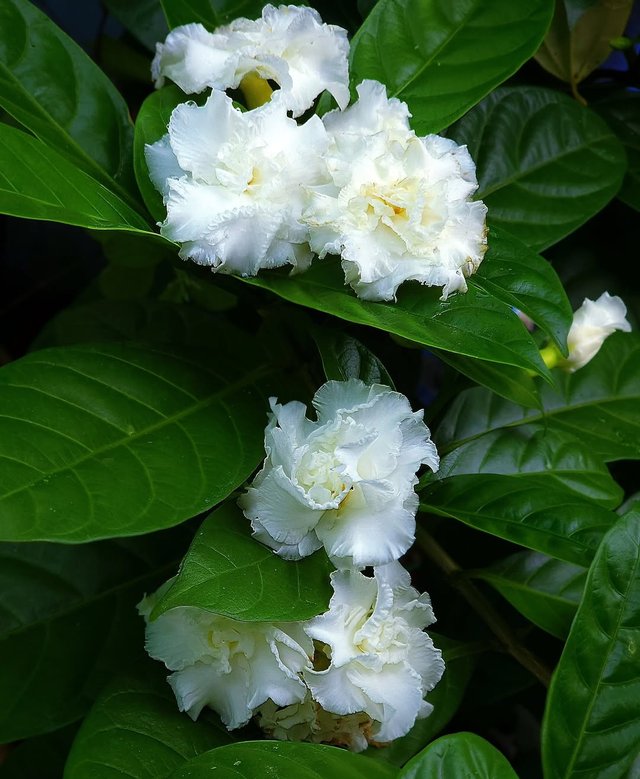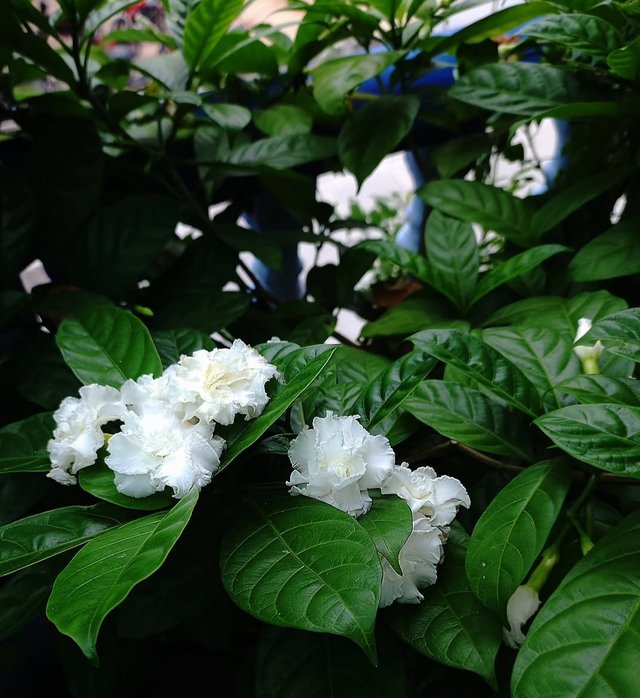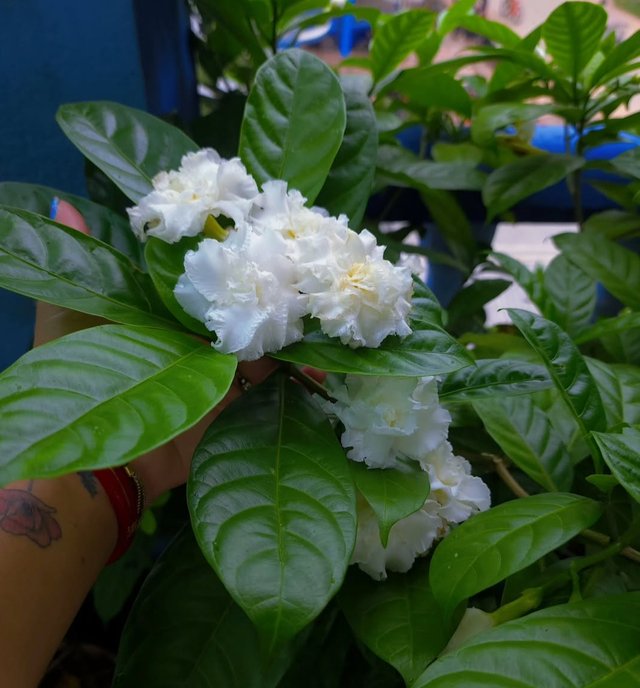White Colour Cape Jasmine Flower
Cape jasmine, often simply called gardenia, is one of the most cherished ornamental plants in the world, known for its glossy evergreen foliage and intoxicatingly fragrant white blossoms. Belonging to the Rubiaceae family, this plant has become a symbol of elegance, purity, and love, gracing gardens, homes, and floral arrangements for centuries. Native to southern China and Japan, Cape jasmine thrives in warm climates and has long been cultivated both for its ornamental value and for its cultural significance.
One of the defining features of Cape jasmine is its captivating fragrance. The large, creamy-white flowers release a sweet, heady scent that intensifies during the evening hours, making it a favorite for night gardens and patios. Each bloom resembles a delicate rose in shape and usually appears from late spring through summer, although in favorable conditions, the plant may continue flowering into early autumn. The flowers contrast beautifully with the plant’s dark, leathery, evergreen leaves, which remain attractive year-round.
Beyond its aesthetic appeal, Cape jasmine carries deep symbolic and cultural meanings. In many traditions, the flower represents purity, secret love, and refinement. In China, gardenia flowers are often used in perfumes, teas, and even traditional medicine. Their soothing fragrance has been associated with calming the mind and lifting the spirit. In Victorian flower language, gifting a gardenia often conveyed admiration and affection without words.
Horticulturally, Cape jasmine requires specific conditions to thrive. It prefers slightly acidic, well-draining soil enriched with organic matter. Gardenias are sensitive plants, often considered challenging to grow, as they demand consistent care. They require bright but indirect sunlight, high humidity, and regular watering. Temperature fluctuations, poor soil, or neglect in feeding can quickly lead to yellowing leaves or bud drop. Yet, for those who are willing to nurture it, Cape jasmine rewards with unmatched beauty and fragrance.
Apart from being a beloved garden shrub, Cape jasmine has practical uses as well. Its flowers are sometimes harvested for use in perfumes, soaps, and essential oils. In traditional Chinese medicine, the dried fruits of the plant, known as zhī zi, have been used for centuries to treat ailments such as fever, inflammation, and insomnia. Though its medicinal applications are less commonly known outside Asia, this aspect adds another layer of depth to the plant’s significance.




